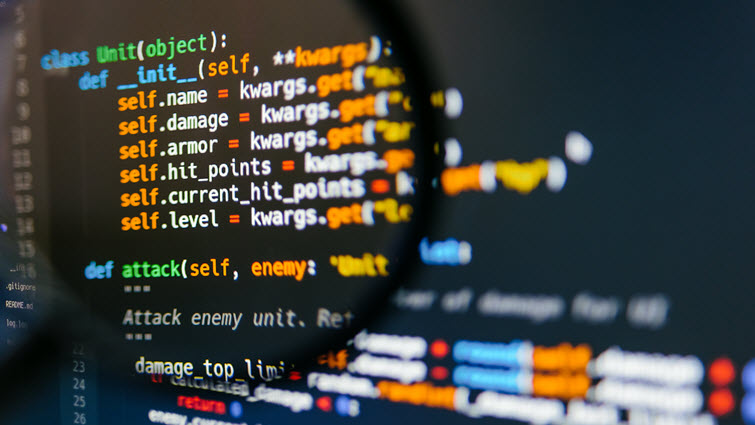Coding is a pivotal skill in many aspects of today's technology-driven society and it holds growing significance for many jobseekers and students, including those contemplating a career in cybersecurity. While far from all roles in security explicitly demand coding skills, it’s challenging to envision a career in this field that at some point wouldn’t derive substantial advantages from at least a basic understanding of fundamental coding principles.
In this article, we will review five of the most commonly used programming languages in security and highlight the main benefits of each.
Python
Python is known for its extensive collection of tools and libraries, ease of use and compatibility with other platforms and technologies, as well as the fact that it has one of the most active developer communities. This all makes it one of the most widely used programming languages in the realm of cybersecurity, where it is often used for the automation of repetitive tasks, auditing, forensic analysis and the analysis of malware.
As a scripting language, it can be very useful for solving a specific problem, such as analyzing a piece of malware and extracting information from it, decrypting its configuration or performing other types of low-level analysis.
RELATED READING:
Cybersecurity careers: What to know and how to get started
5 reasons to consider a career in cybersecurity
It is a straightforward and easy-to-learn programming language, with a much shorter learning curve than some other languages. It often requires much less code compared to other programming languages. Because it is open source, information about it is plentiful.
PHP
While PHP is most commonly used in web development, there are also a number of ways in which it can be applied in cybersecurity. One example is the analysis of PHP-based web applications or the search for vulnerabilities such as SQL injection or cross-site scripting (XSS).
PHP can also be useful for identifying suspicious behavior in web applications or web servers by analyzing their logs, looking for patterns that may indicate a compromise or security breach.
Finally, although the possibilities for developing security tools in other languages are very broad, PHP also allows you to create customized web user interfaces or integrate different security features in the control panel.
JavaScript
JavaScript, also known as "JS", is an interpreted, object-oriented, scripting programming language. It is widely used in the development of legitimate different applications, including websites and mobile applications and games, among others. If you want to look at web app security (and related vulnerabilities), having a good grasp for JavaScript will be important for your career prospects.
In the realm of cybersecurity, it can be used for malware analysis, i.e., for the analysis of code found in malicious files or websites, ideally in a virtual machine or an isolated environment to avoid a possible compromise on the physical computer. JavaScript also allows for the creation of functions that will be invoked immediately, as soon as the script is executed.
READ ALSO:
A career in cybersecurity: Is it for you?
Cybersecurity careers: Which one is right for you?
Attackers often spread malicious code developed in JavaScript with a high level of obfuscation in order to complicate the work of cybersecurity analysts and in an attempt to evade detection by security software.
SQL
While Structured Query Language (SQL) is not a general-purpose programming language, having a good understanding of how relational databases work with this query language is a very useful skill for those performing code security audits and penetration testing.
SQL is widely used for querying and updating this type of database and its knowledge can help find security flaws in the code of an application that, in the worst-case scenario, can lead to unauthorized access to an application or system or to thefts of sensitive information.
Both administrators and developers write SQL queries for various purposes: retrieving, updating or deleting information stored in database tables, among many others. In turn, SQL injection represents one of the most frequent attacks on web applications, for which it is necessary to perform penetration tests and identify and remedy these loopholes.
PowerShell
PowerShell is often used for configuration management and task automation, making it an excellent choice for environments where Windows operating systems are prevalent. In forensic analysis, PowerShell can be very useful when it comes to retrieving information and learning how attackers got into a system during a security breach.
A solid knowledge of PowerShell can also be leveraged in penetration testing, in the various stages involved during the process, such as exploit execution, service scanning, and malware analysis.
Conclusion
Obviously there are other programming languages that are widely used in cybersecurity, such as C and C++, Java, Bash, Go, and Ruby, but those will be topics for future blogposts.
DIG DEEPER:
What's it like to work as a malware researcher? 10 questions answered











